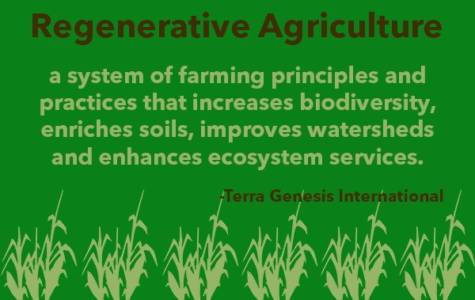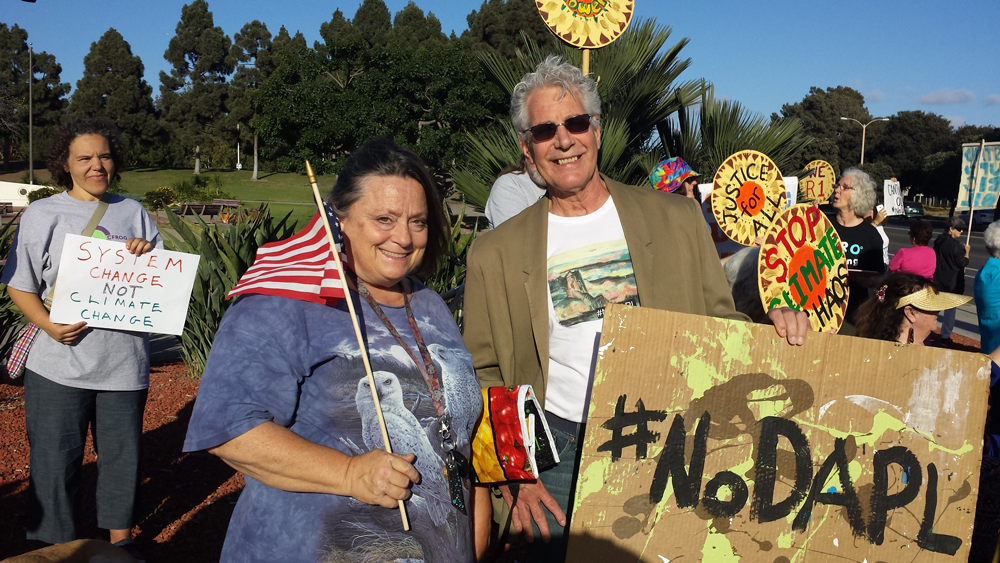Sign and share the Climate Coalition Petition
Join us in asking the Ventura County Board of Supervisors include Regenerative Agriculture as the framework for programs that build soil carbon and fertility, water-holding capacity and resilience, and increase biodiversity to reduce pests and diseases.
To make comment on this for the VC2040 General Plan, email to Susan Curtis <[email protected]> no later than Monday, August 31, 3:30 p.m..
PETITION: To support all 40 of the recommendations from the 350 Climate Coalition including these about pesticides, sign the Petition to the Supervisors: CLICK HERE
INSTRUCTIONS: To comment to the Supervisors during the September 1 hearing or ahead of time by email: CLICK HERE.
Regenerative Agriculture is increasingly understood to mean practices for a resilient future. Organic doesn’t do it. Sustainable doesn’t get it. The status quo is failing. We have less than 60 years of harvests left in the Mid-West because the soil is degraded. Locally, the soil organic matter on farm fields is about 1.5% and many soils have little life in them. We don’t want to sustain practices that deplete soil–we want to heal the soil.
Regenerative Agriculture is a term that
- deescalates the battle between organic and not organic,
- inspires curiosity and inquiry, and
- provides incentives by leading to accreditation for carbon credits.
Many small-scale farmers around the world farm with nature–it’s not new. It’s a mindset to heal the soil and farm with nature and it’s more and more being called ‘Regenerative’. Whole Foods Market named Regenerative Agriculture the #1 trend for 2020. It is more complicated to plan for increasing biodiversity, when you stop needing to buy artificial nitrogen and other fertilizer, you become more profitable.
The USDA and many organizations report the benefits of organic and regenerative agriculture not only for climate resilience and mitigation of greenhouse gas and dust impacts resulting from tillage, but also of pests and disease. Regenerative farming methods are pathways for social and economic justice by providing greater farm profitability and lifting up the economy of the whole community.
A study of 225 U. S. counties that have “organic hotspots” — high levels of organic agricultural activity with neighboring counties with high organic activity — revealed how these organic hotspots impact key county-level economic indicators.
Economic Benefits of Organic Hotspots:
- Boost household incomes and reduce poverty levels — and at greater rates than general agriculture activity, and even more than major anti-poverty programs.
- Being an Organic Hotspot increases median household income by over $2,000
- Being an Organic Hotspot lowers a county’s poverty rate by as much as 1.35 percentage points
- Jaenicke, E. Penn State Ag Economist. (2016) U.S. Organic Hotspots and their Benefit to Local Economies prepared for Organic Trade Association https://ota.com/sites/default/files/indexed_files/OTA-HotSpotsWhitePaper-OnlineVersion.pdf
- Delta Institute and Earth Economics (2017). “Valuing the Ecosystem Service Benefits from Regenerative Agriculture Practices–Farmland LP 2017 Impact Report”.
Please ask the County Supervisors to support the use of this term Regenerative Agriculture as a shift of mindset towards adoption of these practices by more and more farmers and land managers in the county. Here are our recommendations (underlining shows our recommended additional language):
AG-L Encourage and Facilitate Carbon Farming in a Regenerative Agriculture Framework The County shall collaborate with University of California Cooperative Extension to develop a program to encourage and facilitate carbon farming projects, including development of demonstration projects and site-specific carbon farm plans, promote carbon farming accreditation, and guide implementation of carbon farming practices in a regenerative agriculture framework throughout the county, when feasible. Unless otherwise precluded by State law, the County will consider carbon sequestration farming operations to be eligible for an Open Space Easements or Land Conservation Act contracts with 25 per cent set aside for socially disadvantaged farmers or ranchers, as defined in Section 512 of AB-2377 (See new program AG-X)
RATIONALE: Modified to ensure that carbon farming develops as part of a holistic regenerative farming benefits framework, that may qualify for favored tax treatment, addressing tenancy barriers, and not just about farmers selling carbon credits. To help owners of farmland benefit from Land Conservation Act contracts by themselves or their tenants earning income from carbon farming accreditation, and from other benefits of regenerative agriculture for land owners and tenants, such as climate and economic resilience and profitability.
NEW PROGRAM AG-R: Incentivize farmers to adopt regenerative agriculture practices that sequester carbon and reduce pesticides and artificial nitrogen. The County shall study how to help farmers adopt regenerative farming practices that sequester carbon and infiltrate water, reduce toxic pesticide and artificial nitrogen fertilizer use, and increase equity and profitability in a continuum of learning about living soils, natural fertility and healthy plants that resist pests and disease. Incentives may include but not be limited to helping obtain Organic, Regenerative Organic, and/or Biodynamic certification, discounting taxes, backing for favorable loans, and supporting training and/or cooperative access to services and markets.
RATIONALE: Added to make clear that regenerative agriculture is the best description of sustainable policies and programs that include climate, environmental, economic and resilience value for all farmers.


